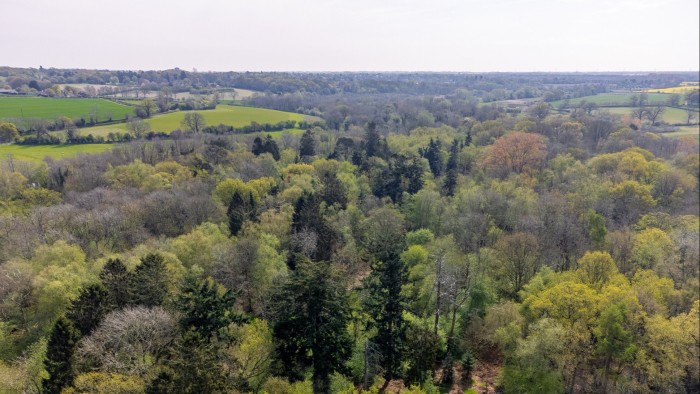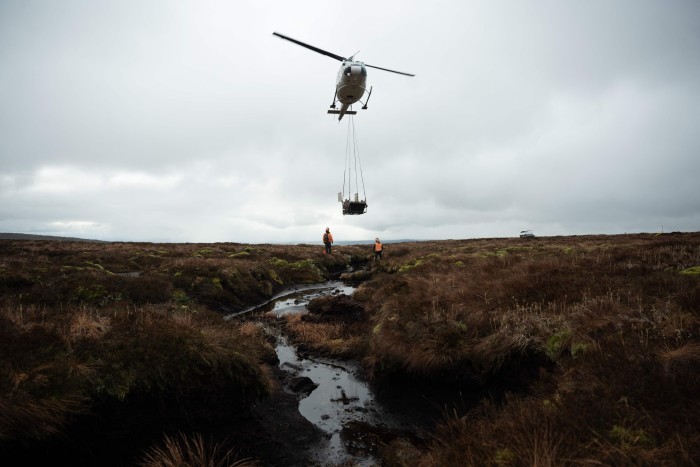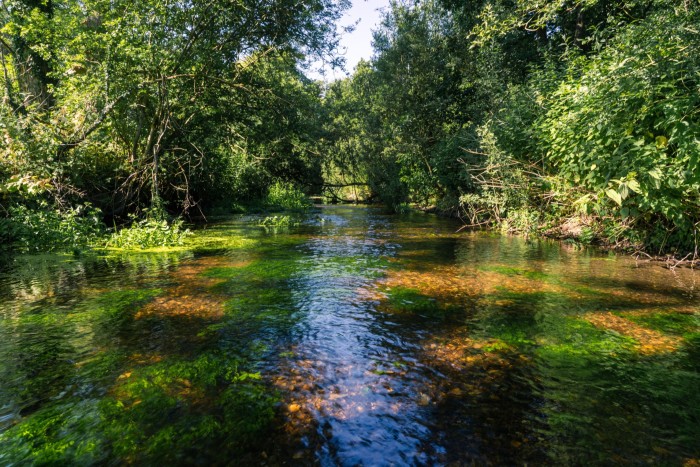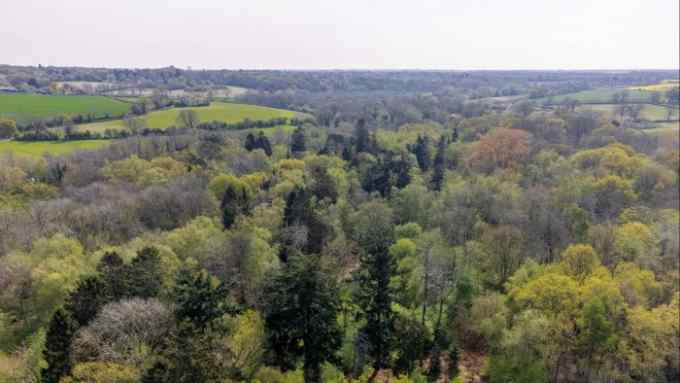New fund aims to boost biodiversity on England’s farms

Simply sign up to the Agriculture myFT Digest -- delivered directly to your inbox.
Sandy soils in Norfolk, in the south east of England, are not ideal for growing wheat. So, in 2021, four local farmers took up an offer of government funding to adapt the land for conservation. “It would become unsustainable for cereal production in the long term, so we were thinking ahead to take advantage of new nature markets,” says Glenn Anderson, one of the group, which has since launched Wendling Beck, a 2,000-acre habitat creation project.
Theirs was an unusual path. Though farmers in the UK are increasingly expected to nurture biodiversity as well as to produce food, it is not always cost-effective to do so.
But, now, that may be about to change. A government-backed plan to establish a new blended finance instrument later this year could make it more economically viable to develop nature-based solutions (NbS) such as peatland restoration and habitat creation.
Entitled the Big Nature Impact Fund, it will be seeded with £30mn by the Department for Environment, Food and Rural Affairs (Defra) and aims to attract private sector investment to environmentally friendly landscape regeneration. Asset manager Federated Hermes and social enterprise Finance Earth have been appointed as fund managers.
According to Federated Hermes, the proposed fund could generate an annual gross internal rate of return of 10-12 per cent. The money would come from investments in land and habitat restoration priced for the first time to generate regulated credits, which would be purchased by developers such as housebuilders.
“We think there is a good robust return opportunity for investors in the strategy we are developing,” says Eoin Murray, head of investment. Estates managed by landowners such as wildlife and heritage trusts form the basis of its approach, and farmland diverted from food production is also eligible.
Without government backing, however, the strategy would not generate revenue streams — a critical barrier to scaling up private sector investment in NbS, because conservation does not yield any money. To remedy this problem, Defra has devised mandatory and voluntary nature-friendly codes defining the terms under which money can be paid to landowners by developers for NbS.
One example is the mandatory biodiversity net gain (BNG) rule, which will take effect in England in November, and the existing Peatland Code, a voluntary standard for carbon sequestration from peatland restoration.

BNG requires at least a 10 per cent net biodiversity gain from developers, either on-site or through the purchase of off-site biodiversity compliance units. It forms the basis for a fledgling biodiversity credit market.
Contracts made between developer and conservation scheme outline how much the developer will pay, and for what, using a government metric that calculates biodiversity values according to type of habitat. For instance, it takes more than 30 years to grow woodland to a good condition, so it scores less than wild meadows.
Compliance units need to be legally secured for a minimum of 30 years and must be linked to developments on a government register. This is designed to ensure transparency in the BNG compliance market by showing which developments have purchased which units.
The proposed fund is part of a broader UK government effort to accelerate the development of what it calls “high integrity” private sector nature markets. Its goal is to increase annual private investment flows to nature in England to at least £500mn by 2027, rising to more than £1bn by 2030.
Other governments are also looking to increase private sector investment in nature-friendly schemes. Last month, ministers from France and the UK announced a UK-French “Global Roadmap” to support the development of biodiversity credit markets.
These have already emerged elsewhere. Mariana Sarmiento, chief executive and founder of Terrasos, a Colombian B-Corp that has developed about 50,000 hectares of privately financed biodiversity projects, points to compliance-based schemes in South Africa, Australia, Peru, Spain and Germany.
In addition, Colombia and the US allow parcels of land called habitat banks to sell credits to voluntary and compliance markets.
Rigorous rules and transparency are the hallmarks of good policies, Sarmiento says, with the US, Australia and Colombia performing particularly well. “They are great examples, as they already have frameworks, lessons learned and high integrity projects issuing high integrity credits,” she says. “They have national registries where you can have access to the information on individual projects.”
In England, farmers considering supplying BNG credits will need to make some difficult calculations about both their finances and their own expertise — a process that Anderson and his Wendling Beck partners have already gone through.
Together, they are converting wheat and barley fields into lowland meadows, wet woodland and chalk streams. Although they will maintain 150 acres of blackcurrant cultivation, they will switch to regenerative practices, which restore the soil.

The scheme aims to sell 2,500-3,000 compliance units at £30,000-£35,000 each — income that covers the whole 30-year contract duration. Financial analysis indicates that they will be better off over a timeframe of 28 years as a result of the switch.
But converting the land is not a simple process, says Anderson. “This is high-end conservation management, as you would expect from a wildlife trust. That’s a completely different skillset from what you would expect from arable farmers.”
One skill needed is the selection of appropriate, locally sourced flower and tree seeds that will be resilient to pressures such as climate change. Choosing the wrong seeds could lead to financial losses.
Most significantly, though, Anderson notes the pioneering nature of land conversion demanded by BNG contracts. “No one has taken an arable field to the high condition of a lowland meadow,” he says. “It’s never been done and we don’t know if it can be done.”

Comments